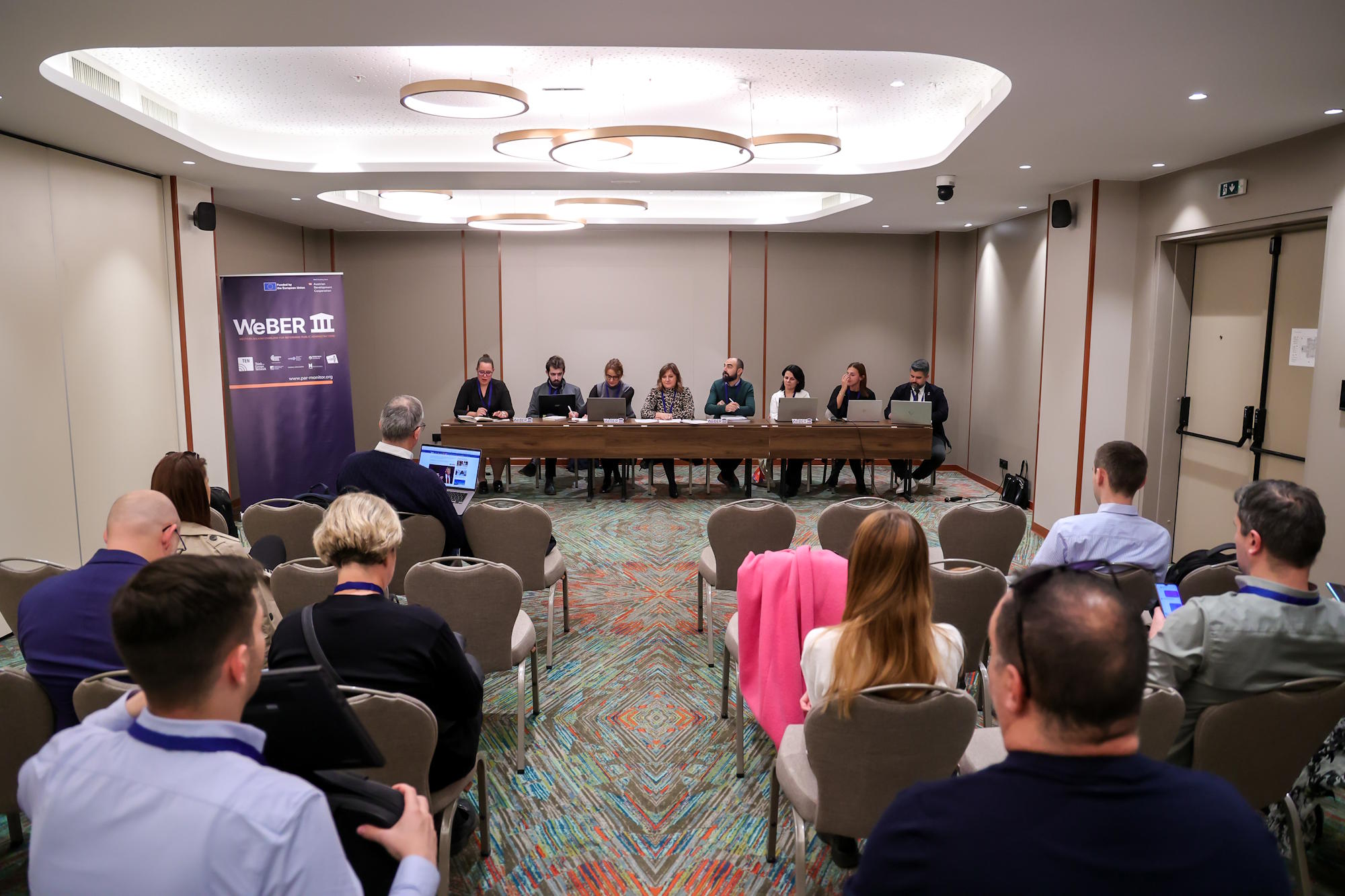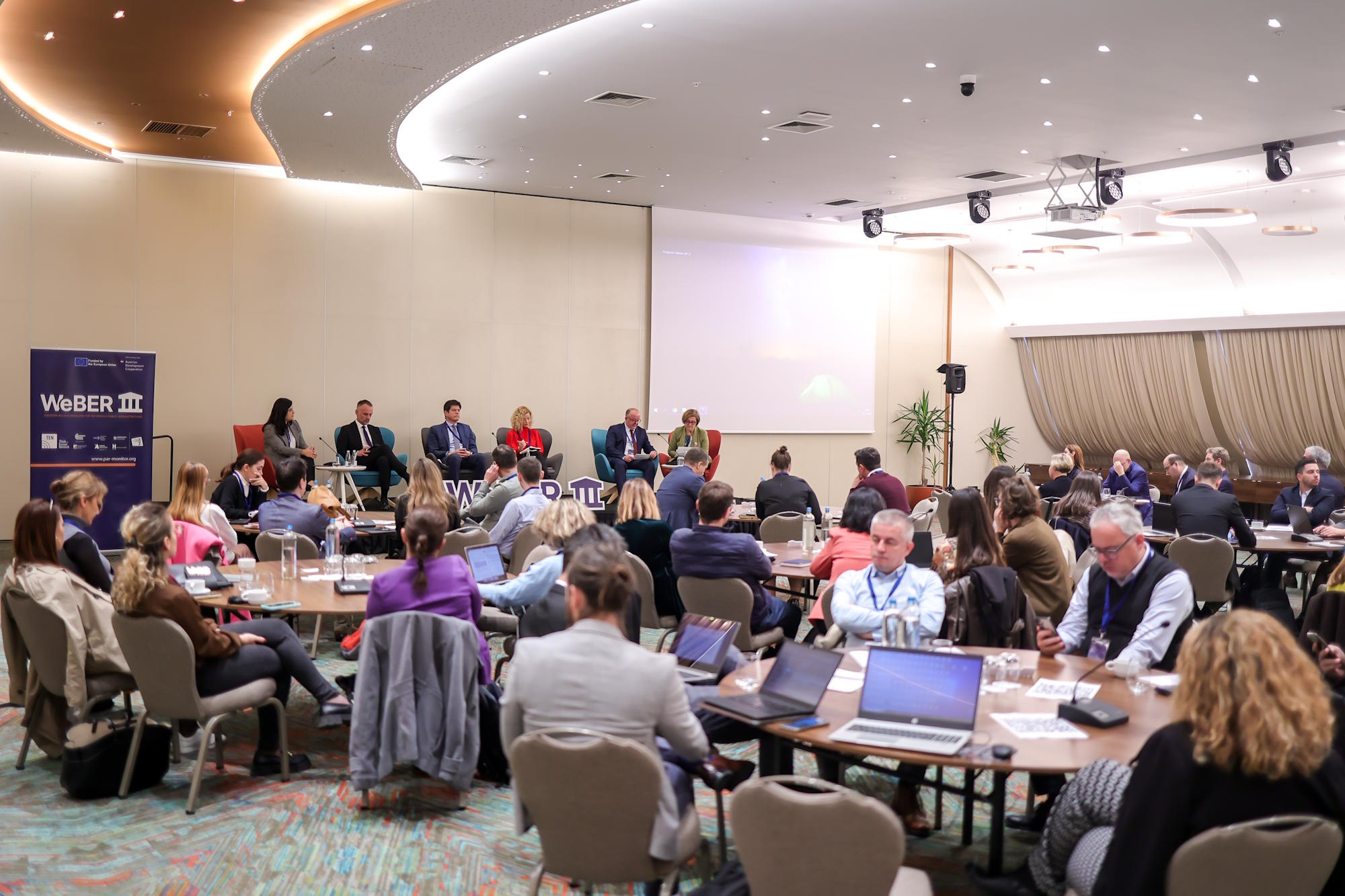Innovations in Public Administration: Driving Change through EU Integration and Sectoral Reforms
On 5th and 6th of November we organized the regional meeting on public administration reform (PAR) as part of the Western Balkan Enablers for Reforming Public Administrations (WeBER 3.0) project, implemented by the Think for Europe Network.
The WeBER Platform members from the Western Balkans have met in person and discussed public administration reform on a regional level. This platform brought together CSOs, government representatives, and international and regional organisations, along with distinguished independent experts, all of whom shared their insights and latest developments in PAR.
The event featured opening remarks by EPI’s director Simonida Kacarska, the deputy prime minister in charge of good governance Arben Fetai, the EU Ambassador to North Macedonia H.E. Michalis Rokas, the deputy minister for public administration, Laze Jakimoski and the WeBER 3.0 Team Leader Milena Mihajlovic from the European Policy Centre in Belgrade.


The programme also included a panel discussion on the latest trends and developments in public administration reform in the Western Balkans and the EU. This session gathered renowned experts and scholars, all esteemed members of the WeBER Advisory Council, to share their insights and perspectives on ongoing reform efforts across the region and beyond. The latest PAR trends were discussed by Péter Vági, SIGMA/OECD Coordinator for the Western Balkans and Türkiye, Maja Handjiska – Trendafilova, director of the Regional School for Public Administration (ReSPA), Jan-Hindrik Meyer-Sahling, professor of Political Science at the University of Nottingham, Tiina Randoma-Liiv, professor and chair of Public Management and Policy at Tallinn University of Technology, as well as Thomas Prorok, Managing Director at KDZ – Centre of Public Administration Research.


The WeBER Platform meeting in the afternoon focused on integrating the Principles of Public Administration reform into sectoral policies. In two parallel sessions, CSO members of the Platform presented the preliminary results and recommendations from country-specific analyses on how these principles are embedded in national sectoral policies. Participants discussed the challenges encountered during the monitoring process and explored strategies to overcome them. This monitoring exercise, initially piloted under the WeBER 2.0 project, was conducted using a methodology developed by the WeBER Research Team, then refined and implemented.


The WeBER 3.0 initiative is implemented by the Think for Europe Network – TEN, which includes EPI Skopje, the Institute for Democracy and Mediation (IDM), Tirana, Institute Alternative (IA), Podgorica, the Group for Legal and Political Studies (GLPS), Pristina, and the Foreign Policy Initiative Bosnia and Herzegovina (FPI BH), Sarajevo, all coordinated by the European Policy Centre (CEP), Belgrade. The initiative is principally supported by the European Union and co-funded by the Austrian Development Agency. In collaboration with the EU-level partner Centre for Public Administration Research (KDZ) in Vienna, the Network continues to strengthen participatory democracy by fostering the effective involvement of civil society organisations (CSOs) across the Western Balkans in PAR. Together, the partners support inclusive citizen engagement in monitoring PAR progress, aligning with the EU accession requirements and the SIGMA/OECD Principles of Public Administration.






